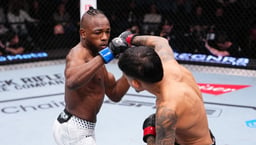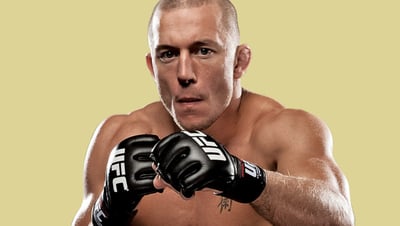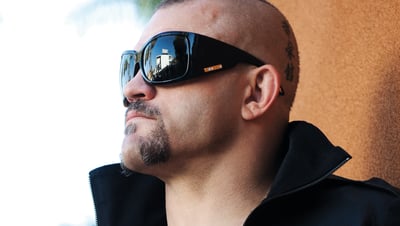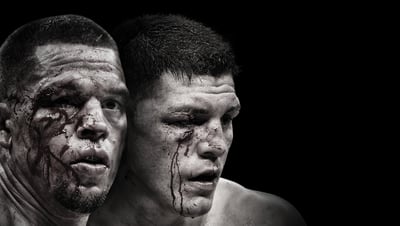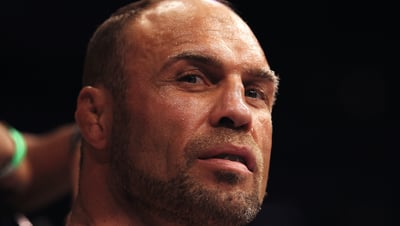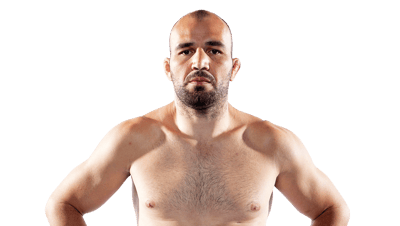
Issue 209
September 2024
Once the gloves have been laid down, the big question remains: what next? UFC legend Chris ‘The Crippler’ Leben spoke exclusively to Fighter’s Only’s Paul Browne about his journey since leaving the Octagon.
For MMA fans of a certain vintage, Chris Leben is remembered for his time on the inaugural season of The Ultimate Fighter (TUF). When the UFC’s reality show first hit TV screens in January 2005, Leben stood out as one of the cast's most abrasive, outspoken members.
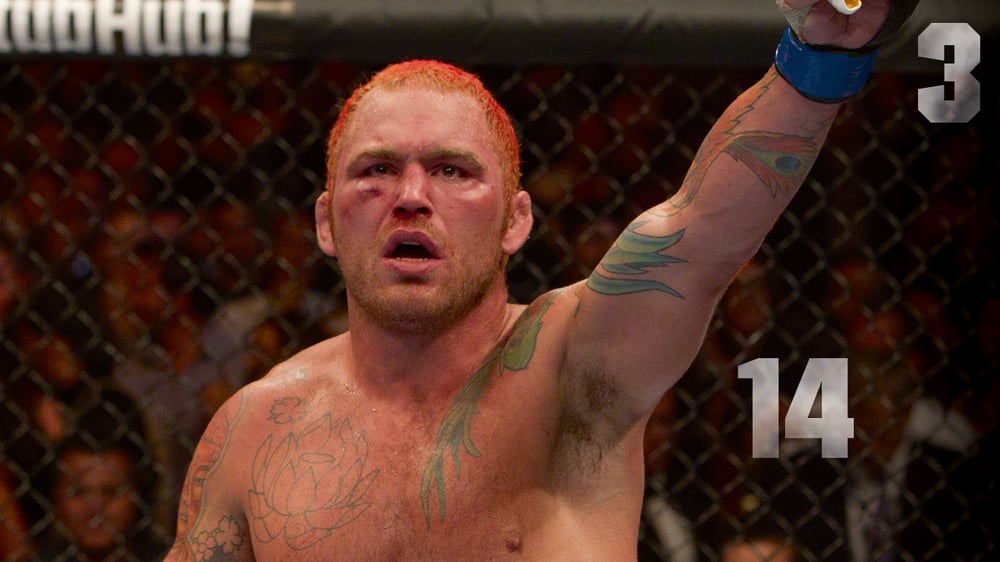
“Looking back, the experience was amazing,” said Leben of his time in TUF house. “I probably look at it like Navy SEALs look at basic training, like I’m really glad that I did it. It propelled my career and my life. Would I want to go back and do it again right now? Probably not. But a lot of great memories, amazing experience.”
TUF is still an active piece of the UFC’s extensive media portfolio, and hundreds of fighters have participated in the show over the years. Still, the 16 who took part in that initial season had all the awareness of a goldfish facing a tsunami when they arrived on set and Leben is the first to admit it.
“I don’t think at the time any of us had any idea what The Ultimate Fighter was or what it was gonna be to America and international culture and how it was going to change the face of the UFC and martial arts as a whole,” smiles Leben.
Where it took him and how it ended is a tale worth hearing because Leben was a unique figure in this landscape.
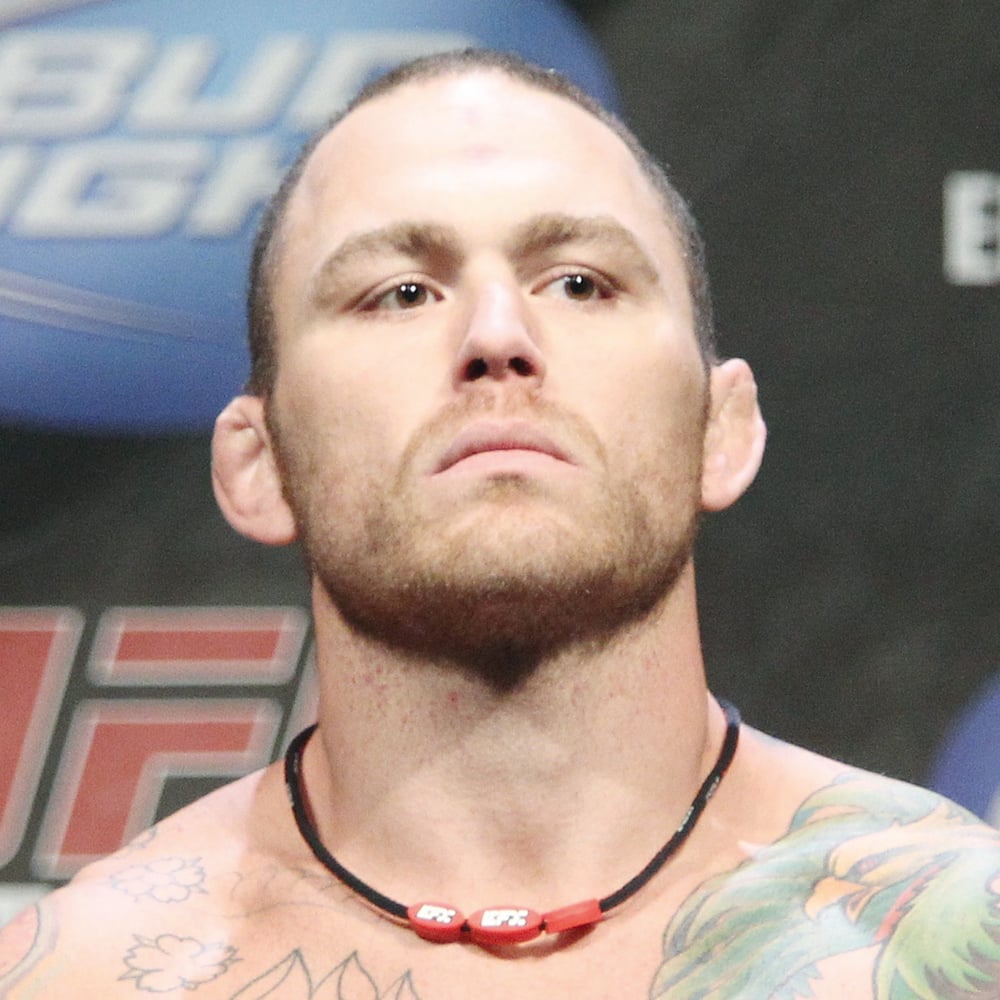
LEBEN’S VILLAINOUS START
Leben’s introduction on the show was dramatic. During the first episode, after a bout of heavy drinking, he urinated on teammate Jason Thacker’s bed. This event kickstarted a series of drunken run-ins with fellow contestants Bobby Southworth and Josh Koscheck, who seemed to take advantage of his persistent drunkenness by teaming up to play pranks and bully Leben.
“I believe everything happens for a reason, and you know, I’m glad it did,” he says. “I had no idea until I went back and watched the show that I had a drinking problem! I drank like everybody in my family. I drank like everybody around me. It wasn’t until I saw the show and the guys in the house were doing their video interviews, and they’re saying, ‘God, I can’t believe Leben’s getting drunk every day, this is the biggest opportunity of his life!’ So, I learned a lot about myself for sure.”
Asked if he harbors any grudges toward Southworth or Koscheck, Leben responds in a rather unexpected fashion that shows his growth.
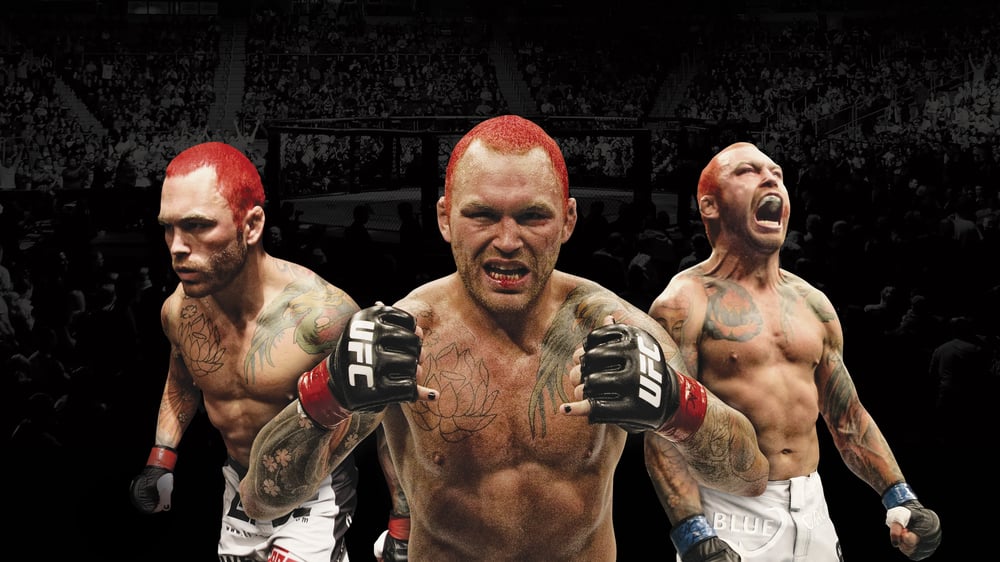
“I’ve talked to Bobby several times since,” he says. “There’s no animosity there. I haven’t spoken to Josh much since the show. I don’t know where he is or what he’s doing, but really, there’s no animosity there. Listen, it was twenty years ago - move on! I’ve had people do far worse shit to me in my life than what happened on those couple of TV episodes, and I was able to get over that, so in the grand scheme of my life, it was relatively minor. They did teach me a lot about myself and for those lessons, I’m grateful.”
A CAREER OF HIGHS AND LOWS
Leben fought in the UFC 22 times between 2005-2013, picking up victories over Wanderlei Silva, Yoshihiro Akiyama, and Patrick Cote. Aside from these memorable moments, his ongoing issues with alcohol took a toll. He lost four consecutive fights between 2011-2013, and the final chapter of his career saw a disconsolate Leben unable to answer the bell for the second round of his fight with Uriah Hall at UFC 168.
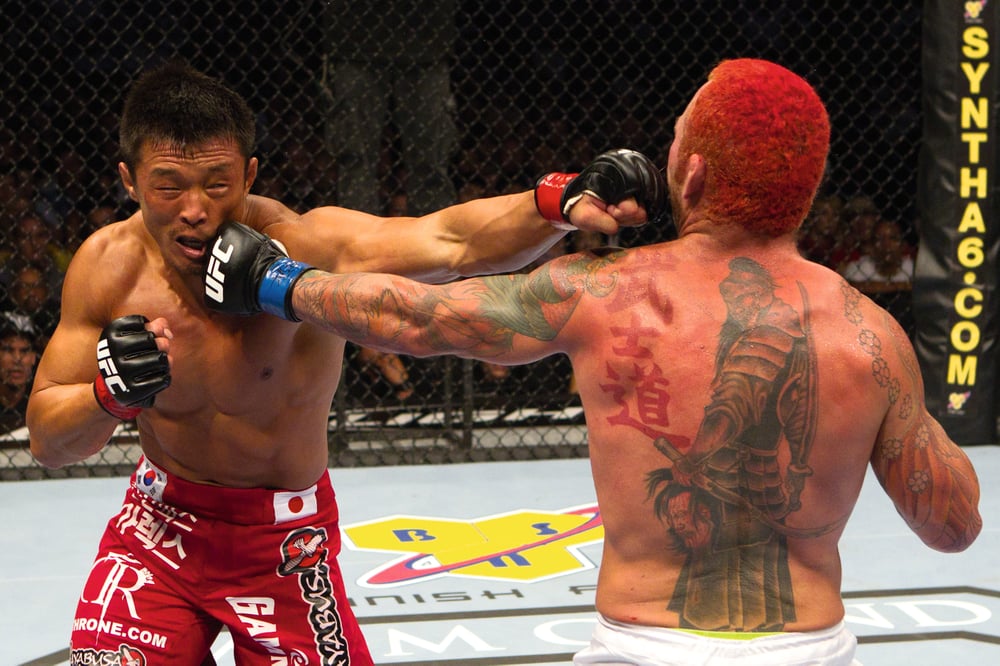
“I felt terrible!” he says, recalling that moment inside the MGM Grand in December 2013. “There was a lot of things going on in my life involving drinking and my life outside of the cage that were affecting my ability to train or even want to train and to be motivated to train and to be into fighting and to love the sport. I had lost all of that, and it was because of drugs and, alcohol, and relationships that I chose to put myself in that caused me to lose all of that. I think that it obviously showed in that last fight. One of the lowest moments of my life was not getting up off that stool to answer the bell. Uriah Hall didn’t stop me. He didn’t knock me out. He didn’t submit me. I just quit. Having done that, it was hard for me to look at myself in the mirror, especially being the type of fighter that I was. My entire career was, ‘Whether Leben wins or loses, you’re gonna know you were in a fucking fight, and the fans are gonna want to watch.’ So, for me going out like that was a heartbreaking experience. I probably knew at that point I was done. Dana White called me a day or two later and was like, ‘I think you should retire,’ and I said, ‘Yeah, you’re probably right,’ and I called it a day.”
AN MMA COMEBACK STORY
Leben remained retired for almost five years, and without the distraction of his MMA career, he faced the reality that alcohol was tearing his life apart. Many former athletes have found themselves at this juncture and walked further into the darkness, but Leben took control of the situation. Once he managed to get a handle on his drinking issues, the cage began to call out to him again.
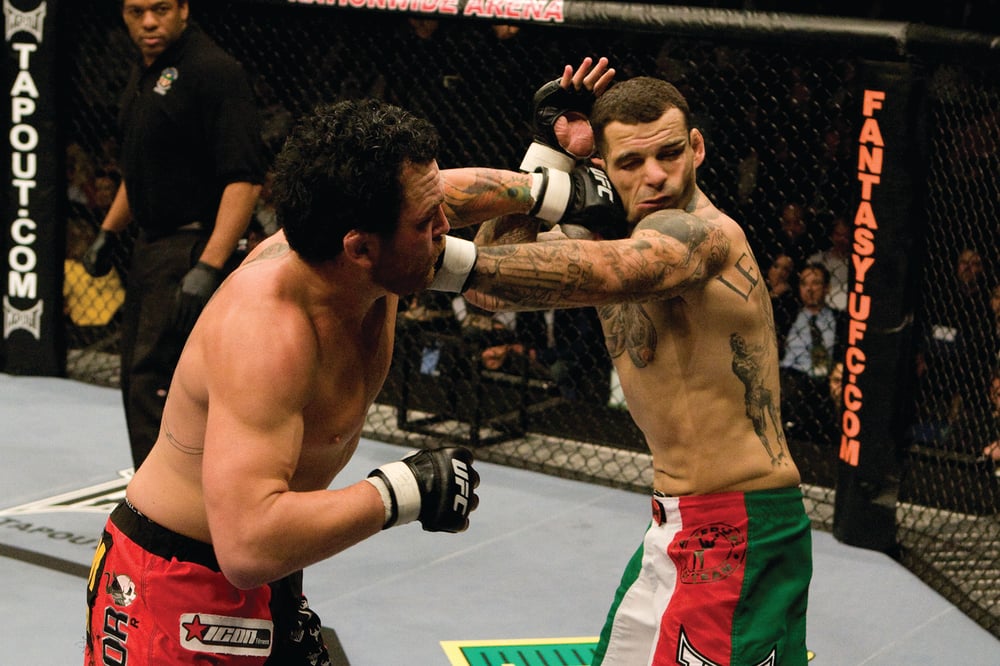
“I got sober,” he says when asked about his decision to return. “I got sober, and I started kicking the shit out of all the twenty-year-olds in the gym. And I started enjoying training again, and I realized how much I loved combat sports.”
In 2016, then-Bellator president Scott Coker announced his company had signed Chris Leben, but the excitement was cut short. “Unfortunately, I had some heart issues due to my history, my partying, and everything else. So, I wasn’t medically cleared to come back and fight in Bellator. It was about two years after that when Bare Knuckle called me. Funnily enough, they called me the day I came out of my cardiologist’s office, and my cardiologist had just told me, ‘Your heart’s as healthy as any man of your age.’ So, I asked him if he would clear me to fight, and he said, ‘Of course, you can do whatever you want.’ It was crazy. Like I joked to the doctor, you cut the cocaine and booze out, and the body just heals itself. He didn’t laugh, but that’s basically what happened. I cleaned up my life, I changed everything, I got sober, I started kicking the shit out of people in the gym. Because of that, my body got healthy again, and I got that call to fight at the perfect time. So, I said, ‘Why not, this is what I love to do!’ My UFC career ended on such a low note. You can’t right a wrong, but I was grateful for the opportunity to come back and finish on my own terms.”
A NEW CHAPTER
Over a two-and-a-half-year period, Leben competed four times in the BKFC ring. The three wins he racked up are a more fitting way to bookend such a storied fighting career. As well as taking back control of his life through sobriety, ‘The Crippler’ made his first steps into a new job, attending Herb Dean’s referee/judge certification course.
“I first started officiating in 2017,” he explains. “I was working at amateur level for probably six years or so, and I’ve been pro now for two years or something like that. In California, I’m a ref and a judge, and I’m doing both MMA and boxing. In Nevada, I’m only judging for MMA. Most of the time, I’m probably judging a little more often than I’m reffing, but every weekend, I’m doing something. Between Nevada and California, there’s a lot of shows, so they’re keeping me extremely busy.”

While many drift into coaching or promoting after their careers have finished, the road into officiating seems less traveled for former high-level MMA fighters.
“In California, we have a phenomenal commission,” he says when asked if he feels he stands out in his new role due to his notoriety. “We got me, we got (former UFC welterweight) Frank Trigg, we got (former UFC heavyweight title contender) Paul Buentello who just started refereeing for us. So, there’s a couple of former UFC fighters there and I think we’re the only ones. Everyone else that works alongside us has, at the very least, fought a little, or they’re a black belt, or they’ve been in the martial arts business their whole life in one fashion or another. I’ve seen other states where you go, ‘Where’s your credentials, what did you do to get here,’ you know? And I’ll say this: you don’t have to have fought in the UFC to be able to judge a UFC fight. That, for sure, isn’t the case. But I do like to see other officials that have a combat sports background.”
THE BUSINESS OF GIVING BACK
A common problem for those who struggle with addiction can be the increase in idle time, which can lead to boredom and temptation. Having a focus or vocation can provide a sense of purpose, and Leben has found this in his new career as an official and through his MMA coaching business.
“We’re called the Training Centre,” he said of his gym in Pacific Beach, California. “We’ve been here about three years, and we’re crushing it. My jiu jitsu coach, Barret Yoshida, is an ADCC Hall of Famer, and I’m coaching the fight team. I’ve got some great striking coaches working with me. It’s great.”
While Leben has experience in coaching, running a business offers many new challenges.
“It’s certainly a new hat for me,” he says, smiling cheekily. “I’ve spent my life on the mats coaching. I could do that all day. You wanna learn jiu jitsu, boxing, or kickboxing? I could teach all day. But dealing with the SEO, the website, paychecks, and everything else? That’s a whole new hat for me to wear, so it’s certainly been a learning experience from that standpoint!”
Coaching is not just a job that helps pay the bills for Leben. Outside of his success in the fight game, he also appreciates the value that training in combat sports has brought to his life. He wants to pay it forward by providing a second home for the students who walk through his doors and step onto his mats.
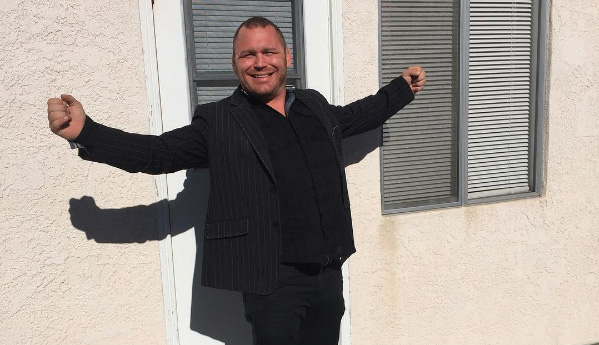
“Martial arts saved my life, simple as that,” he said. “I wouldn’t have graduated high school if it wasn’t for the wrestling team, and I probably would have ended up in prison or dead if it wasn’t for fighting. We’re a sport of outcasts. The gym is kind of like a social club or a home for a lot of people from a lot of different walks of life who don’t fit in anywhere else. And I don’t care if they’re just trying to get in shape. I don’t care if they want to be the next UFC champion. Everybody’s welcome at our place.”
“We’ve got a little bit of everything,” he says when asked to describe the demographic of his clientele at the Training Centre. “I would say we lean more toward the competitive side. A lot of people come in recreationally, and they make the switch after they’ve been with us for a while and they want to start competing in jiu jitsu, boxing, or MMA. That tends to be just kind of what happens at our place. We certainly don’t push it. As far as having aspirations to coach a bunch of UFC fighters? Probably not, because I feel like that’s not where the magic happens in people’s lives. I like exposing people to martial arts. If I was able to get a kid raw and take him from being nothing all the way to the UFC, then that would be great. I feel like I see these successful coaches, but really, what they are is great recruiting agents. They’re great at bringing in people that were already good. I have no interest in doing that just to say that they fight out of my gym”.
A REDEMPTION STORY
For a man who was once so lost, Leben speaks very positively about his plans for the future.
“I’m hoping my gym will continue to build and grow, and hopefully, we can eventually open another one,” he smiles. “As for my officiating career, I’m hoping to expand more into the world of boxing. I’d like to start refereeing boxing as well as MMA, and it looks like that’s going to happen for me.”
Leben seems grateful for all he has in his life and credits his success to good old-fashioned hard work coupled with unwavering dedication to his recovery.
“Every time I think things aren’t going fast enough, all I have to do is stop and look back a year or look back at where I was two years ago. Everything that I’ve wanted, every dream that I’ve had, everything that I’ve wanted to accomplish, it seems to be happening. I’m not trying to brag, but it’s just like everything that I’ve been shooting for is coming together. I just keep my head down. I just put one foot in front of the other. I’m very active in recovery. That’s another big part of my life. I sponsor a lot of guys. I go to a lot of meetings. I work with a lot of people there. And that part of my life has overflowed into everything else, and things have come together for me. As long as I put my recovery first, everything else just falls into place.”
Chris Leben’s journey from the depths of addiction to a life of purpose serves as a potent reminder that no matter how far someone has fallen, redemption is always within reach. Through perseverance and a newfound sense of purpose, he has rebuilt his life, proving that it’s never too late to turn things around with the power of MMA.


